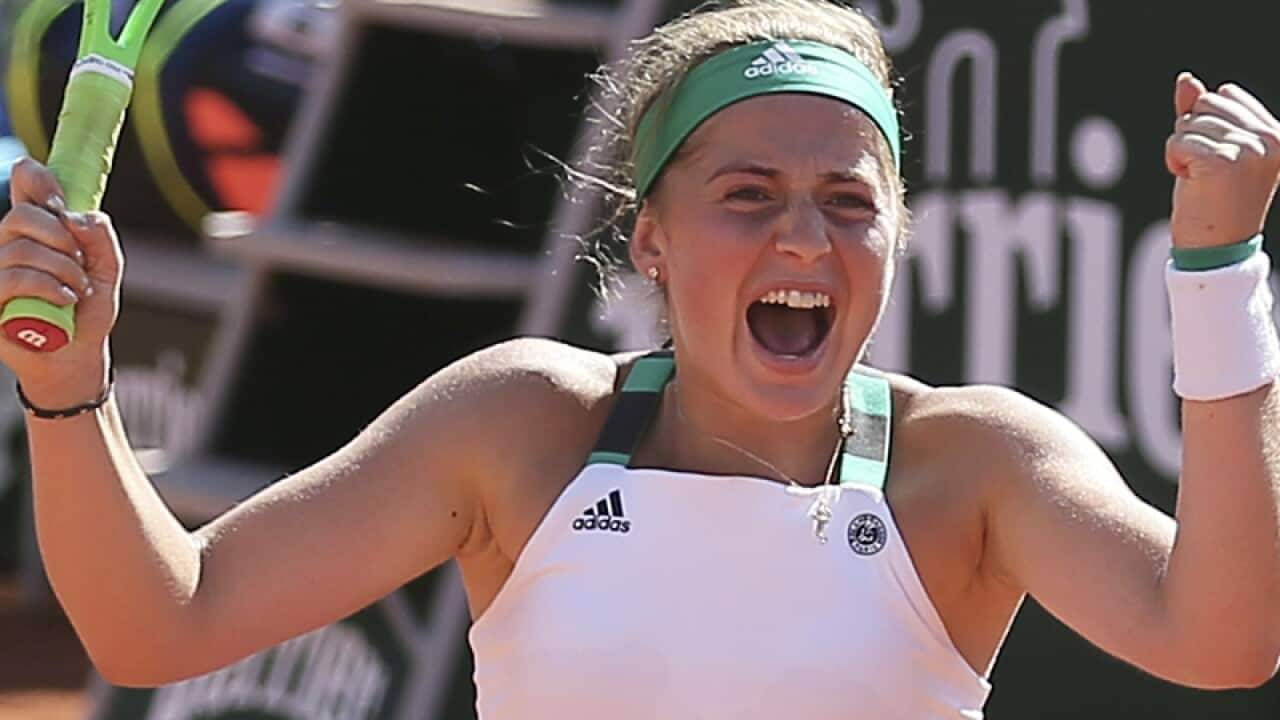To compare French Open finalist Jelena Ostapenko's preferred style to ballroom dancing, just conjure up an image of the quickstep and speed it up by a factor of 10.
Quick feet, quick swings, high velocity - that is the way the 20-year-old from Riga goes about her business.
The livewire Latvian has electrified Roland Garros this year with a refreshingly simple gameplan. While other players take the slow waltz to victory, Ostapenko is a woman in a hurry.
Claycourt tennis can often become a battle of wills - two players waiting patiently for the other to make a false step.
Ostapenko takes a riskier approach, striking every ball as if she is trying to separate it from its fluffy coat.
Pundits have been taken aback by Ostapenko's carefree approach in only her second French Open - one that saw her clock up 50 clean winners in her semi-final victory over Timea Bacsinszky, having belted 38 past Caroline Wozniacki in the previous round.
In six rounds, she has executed 245 clean winners - 26 per cent of all the points she has played. Simona Halep, who stands between her and an improbable first grand slam title on Saturday, has hit 118.
The perception is that Ostapenko, coached by Spain's former top-20 player Anabel Medina Garrigues, has a gameplan limited to trying to belt every ball to oblivion.
Some doubt whether such an approach can seriously upset Halep, especially in the pressure-cooker atmosphere of a French Open final.
"She came out like a thunderstorm in that third set (against Bacsinszky)," seven-time champion Chris Evert said.
"But not many players win their first final in a grand slam. I would be surprised if she came out and can hit winners all over the court like she has been. But I might be wrong."
World No.47 Ostapenko's average forehand speed at the French Open is just behind Rafa Nadal's and ahead of men's No.1 Andy Murray.
"Since I started to play tennis, I had a possibility to play aggressive," Ostapenko said. "That's my game style. But yesterday when I knew that my forehand was faster, I was a little bit surprised."
Tennis players rarely make headline news in Latvia, where ice hockey and basketball are more popular.
Ernests Gulbis enjoyed some fame when he reached the semi-finals in Paris but Ostapenko has taken it to a whole new level after becoming her country's first grand slam finalist.
She even received a phonecall from Latvia's president.
"He actually called my mum. So that's what she told me. I mean, because nobody knows my phone number."
Win on Saturday and the phone might be ringing non-stop.









